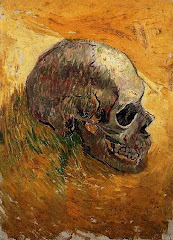Maybe it is because I am getting older, but I have been thinking more about the past than I do about the future.
As a young man, I prided myself on not having any regrets, but “to be an adult is to accumulate regret,”[i] and as I grow older and I become more reflective I realize I do have regrets.
One day, when I was thirteen and living in Quebradillas, Puerto Rico, I had the unfortunate luck of playing a full court basketball game, after a game in which an opposing player was held scoreless. His teammates promised to prevent someone from scoring in the game I was playing. I was selected as the object of revenge.
At the time, I was an average basketball player for my age, but I was the youngest person on the court, and most of the other players were bigger than me.
I was not naive. I knew the opposing team’s intentions. My teammates tried to get me scoring opportunities, but the best player on the opposing team was guarding me. He was several inches taller than me, older, and a better basketball player.
On fast breaks, the opposing players held me, preventing me from taking advantage of scoring opportunities. At times, I was double and triple teamed. I cannot remember which team won the game, but I was held scoreless.
After the game, I was mocked and ridiculed and told I was the worst basketball player. I stood there taking the abuse, and when it ended I went home – angry.
I did not like being embarrassed. Not from having a bad basketball game. I was not that accomplished. It was the mocking that made me angry.
I was still angry when I went to bed. I had trouble falling asleep. I swore I would never play another basketball game as long as I lived.
I cannot remember how many days I was able to keep my oath, but I eventually started playing basketball. I was determined to become a better basketball player. I practiced on my dribbling, and jump shots. I did not become a great player, but I did get better. I developed the ability to score 20 points in a full court game by the time I left Puerto Rico in 1979.
With determination, I could overcome any obstacle. It is a lesson I would soon forget.
In the summer of 1979, my mother, two sisters and I came to New York for summer vacation, but we eventually decided to stay.
Getting enrolled in a high school became a problem. I was in the process of enrolling in Charles Evan Hughes High School, but I became frustrated with the process, threw a temper tantrum, and walked out of the school before completing the enrollment process.
I enrolled in Seward Park High School in October 1979. I was interviewed by the chairpersons of the departments, and it was determined that I belonged in the bilingual program.
The faculty asked, “what is your name,” and “where do you live.” From my facial expressions, they determined I did not know English. The reason my face was contorted was not due to a lack of understanding. I thought they were idiots because they asked stupid questions to an English dominant 15 year old.
The Seward Park faculty also decided I had to repeat the tenth grade.
I did not like Seward Park High School. I was angry because I was forced to repeat the tenth grade. I was not comfortable with the students I shared classes with. I was having trouble making friends. After a prolonged battle, I was placing in the eleventh grade, but that accomplishment did not improve my morale. Annoyance led to frustration and that led to cutting classes and I ultimately dropped out of high school.
I often wonder if I gave Seward Park High School a chance. I definitely did not demonstrate the same resolve I did on the basketball court in Puerto Rico.
At least, I could have finished the school year, then transferred to a better school, or accepted my family’s suggestion to attend a Catholic High School. Instead, I quit.
I got a GED. It is ironic that I got my GED diploma in the mail before Seward Park High School’s graduating class of 1981 got their diplomas.
With the help a college guidance counselor, I was accepted to City College of New York. I wanted to major in English, become a journalist and become a sportswriter. It was more of a fantasy, to have a career writing about baseball, but I thought I had good writing skills. I thought.
I really did not have a high school education. I had to take remedial classes during my freshman year. The English professors were encouraging. I thought I was a good writer. I thought.
I enrolled in an advance writing class in my sophomore year. I wrote three or four essays. The essays had one thing in common. They were graded C-/D+. The last essay I wrote was about my favorite television show – Barney Miller. In the essay, I described the characters and the plots. I got the usual bad grade, but the professor wrote “monotonous” on the margins. He wrote other comments, but monotonous hurt.
I had enough. I was concerned about passing the course. I did not want to fail a class in my second year. I decided to drop the class. The professor thought I was being hasty, but I did not want a D or an F on my college transcript.
From that point, I avoided English classes. I no longer wanted to be an English major. I avoided classes that required writing term papers. I was a student without a major by sophomore year.
The boycott ended in my junior year. I was enrolled in political science classes that required term papers instead of exams. The writing improved, mostly because I had better material to write about. I stopped avoiding classes that required term papers.
On April 15, 1986, President Reagan ordered the bombing of Libya. The bombing was a retaliatory strike against Colonel Muammar Qaddafi’s involvement in a terrorist attack in a West Berlin disco that killed two American servicemen.
The bombing of Libya prompted something I had never done before. I wrote an essay condemning President Reagan’s decision.
The essay was not an assignment. I did not receive a grade for it. I was satisfied with the essay, but felt the need to share it. I submitted the essay to The Campus, the student newspaper of the City College of New York. The essay was published in the April 21, 1986 edition.
I went to the office of The Campus. There was only one person the room. A young man was sitting at desk, talking on the telephone. The young man asked if I needed assistance.
I told him I was looking for more editions of The Campus. I wanted them as souvenirs because an essay I wrote was published in the school newspaper. He wanted to know which article. “The article about the bombing in Libya,” I said.
“You wrote that?” he asked. He ended the telephone conversation, got up from his desk, walked over to me, and shook my hand. He liked the article. We talked for a few minutes. He gave me a stack of papers and I left.
I was proud to have written something that was published. The essay was published in its entirety. Nothing was subtracted or added. I was a little upset that the editor changed the title of the essay and my last name was misspelled, but I felt regret over not taking advantage of writing for the school newspaper.
I was over my writing phobia. I read Hemingway for the first time. I also read Elements of Style by William Strunk and EB White. I developed a new writing style, staccato rhythm, shorter sentence structure, eliminated redundancies, and improved my editing skills.
I became a better writer after I graduated from City College. Writing term papers and a thesis was fun when I attended Brooklyn College.
But writing requires discipline, something I lack. Over the years, I started and restarted a novel I hoped to publish.
I’ve had good ideas for articles, but not written them because I did not believe the articles would be published.
I thought about publishing a newsletter. I intended the Nihilist Papers to be a monthly newsletter. I actually completed two editions, but stopped, mostly to a lack of discipline.
After September 11, 2001, I wrote an angry essay about the relationship between the Middle East and the west. I shared it with a few friends.
But it was not until the advent of Blogs that I finally found an opportunity to publish essays.
Last year was productive. The primaries and presidential campaigns produced a wealth of material to write about.
I still struggle with discipline. Writing is a constant struggle, to properly express a thought, to convey an idea in an interesting style that readers will appreciate.
Writing is hard. Not every essay flows easily like the articles about the Libya bombing or September 11.
Sometimes, I’ll write a thousand words, read them and not be satisfied with the result. The temptation to quit is great, but I force myself to persevere.
The article I wrote last year about Mayor Giuiliani’s failed presidential campaign is an example. I was unhappy with the first draft, so I wrote a completely different article.
Sometimes ideas become obsolete because news cycles change rapidly. Good ideas become old news.
Live long enough and you will have regrets. I have not lived long, but I am beginning to regret some of the decisions I have made.
Regarding writing, I wish I had demonstrated the same perseverance I demonstrated on the basketball court when I was teenager in Puerto Rico.
The article that was published in The Campus is titled, “The Politics of Stupidity – A Layman’s View.” It is the article published below this essay on this blog site. I resisted the temptation to make corrections.
[i] Randy Cohen, New York Times Ethicist.
Monday, May 25, 2009
Subscribe to:
Post Comments (Atom)











No comments:
Post a Comment